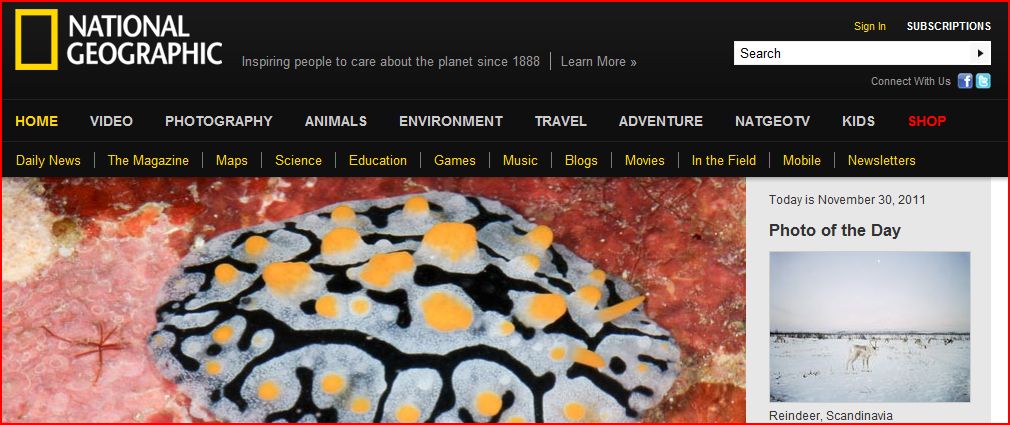Top Five Science Magazines Every Scientista Should ReadDecember 01, 2011
By Juliet Snyder Ever feel like you’re the last person to know about the latest scientific discovery? Have you ever wanted to be able to contribute in the dining hall to conversations about science or to learn more about current scientific discoveries in general? Though more informative, scientific journals (which can be lengthy and dense) may not be the fastest way to catch your daily science news Thankfully, the scientific community has produced scientific magazines that bring the latest news in science just a click away. Science magazines conveniently summarize conclusions from hot new studies in both magazines and online, often reducing the amount of scientific jargon so that a non-specialist can understand. This is a great way to learn what is going on in new fields that you haven’t yet studied but would like to explore. You may be asking yourself, “There are many websites and magazines out there, but which ones should I read? For the eager Scientista, I have five science magazines that will allow them a portal into the up and coming information in the scientific community. Read on to impress your professors, post-docs and friends. #1. Discover
What’s inside:
Founded in 1980, this “young” magazine is a good starting place for deeper research. Looking at topics ranging from “Health and Medicine” to “Physics and Math”, there is something in Discover for everyone, whether you are addicted to life science, space, evolution, medicine, or statistics. One of the current hot articles in Discover is titled “Neanderthal Neuroscience”. Intrigued? Where can I find it? Discover is available as both a magazine and online. For a college student on a budget, my suggestion is to just look at the articles online. The quickest way to glean information about new and exciting research is through the “Latest News” and “Most Popular” sections on the Home page (this also ensures some nice diversity in the topic of research you are reading). The website is discovermagazine.com. When should I read it? When you are looking for the research in the major natural sciences, physical sciences, technology and mathematics categories, this is the best place to look. There are new smaller articles every day or so, however the big articles are only put out every week or so. Check in from time to time, especially if you are tired of awkward silences with your post-doc while waiting for a test tube to centrifuge and would like something to talk about. #2. National Geographic
What’s inside?
National Geographic, although it focuses mainly on the natural sciences, is a must read for anyone interested in science or just the world in which we live. Filled with captivating pictures and research about space, the environment, animals, and the like, National Geographic is great for all ages. Where can I find it? National Geographic is also available in both magazine and online form. However, unlike Discover, Nat Geo (as it is sometimes lovingly referred to) is truly one of those magazines that is worth getting in print. With an emphasis on stunning photographs as well as articles, Nat Geo is even more enjoyable on glossy pages. I strongly suggest getting a subscription for a sibling or family member, younger or older. It could spark in them a love for science at any age! Online it can be viewed and subscribed to at nationalgeographic.com. When should I read it? Nat Geo is a monthly magazine with articles appearing more frequently online. There are a plethora of reasons to read Nat Geo, from learning about the latest global crisis and its effect on that region of the world to simply looking for a dream travel destination over summer break. Nat Geo is truly one of those guilty pleasures that can be read for both cerebral enlightenment and plain enjoyment. Page 1 | Page 2 About the Author
Comments?
|
The Scientista Foundation, Inc. All Rights Reserved © 2011-2021 | Based in NY | [email protected]
The Network for Pre-Professional Women in Science and Engineering
The Scientista Foundation is a registered 501(c)(3) -- Donate!
The Network for Pre-Professional Women in Science and Engineering
The Scientista Foundation is a registered 501(c)(3) -- Donate!



